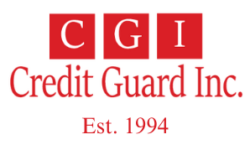
The Cost of Uncollected Debt Before Year-End: Why October Is the Time to Act
As autumn arrives and the final quarter of the business year begins, financial leaders must wrestle with one hard truth: uncollected debt left unaddressed in October inevitably devolves into lost liquidity and painful write-offs by December. The Cost of Uncollected Debt Before Year-End isn’t just a line item—it’s a drag on expansion, morale, and stakeholder confidence. For Canadian businesses, October offers a critical window to recover overdue accounts, stabilize cash flow, and close the books cleanly. In this article, we’ll explore why delaying collections past Q4 is risky, what hidden costs accrue over time, and how partnering with a professional agency like CGI Credit Guard now can shift your year-end outcome from “damage control” to “recovery win.”
October Reality Check: The Clock Is Ticking
Why Q4 is Critical for Financial Cleanup
October marks the beginning of Q4—your last meaningful runway to act before the calendar flips and your financial statements lock in. At this stage, every outstanding receivable left unresolved becomes a “shadow liability” that may never convert. The urgency isn’t just symbolic: many businesses set their budgets, capital expenditures, and tax projections in Q4. Let overdue accounts linger and you risk:
- Understating true revenue
- Weakening your cash cushion
- Compromising your ability to invest or hire
- Having to revise forecasts or issue internal warnings
Because once December’s books are closed, it’s often too late to make meaningful recovery without triggering material restatement or writing off irrecoverables.
The Problem with Rolling Over Delinquent Accounts Into the New Year
Rolling debt into the next fiscal year compounds risk and obscures metrics. It creates several issues:
- Normalization of bad debt – When you carry a backlog of old receivables as “working capital,” it masks underlying problems in your credit controls or customer vetting.
- Aging penalty – The older a debt gets, the harder it becomes to collect due to memory fade, loss of contact, or debtor resource erosion.
- Statute or limitation complications – In Canada, each province has time limits for when a creditor can legally enforce a claim. If you wait too long, you may lose legal leverage.
- Stakeholder signal – Investors, bankers, or board members might view large receivable write-downs as warning signs.
In short: deferring collections is not deferring work—it’s deferring loss.
The Hidden Cost of Carrying Bad Debt
Impacts on Cash Flow, Creditworthiness, and Forecasting
At first glance, an unpaid invoice might look like “future income.” But in reality, it’s a liability masquerading as an asset. The longer it goes uncollected:
- Cash flow erodes — You lose actual purchasing power, forcing reliance on external funding or delaying payments to your own vendors.
- Forecasts misalign — You may budget growth or expansion based on overstated receivables, leading to shortfalls when they don’t materialize.
- Credit profile weakens — Lenders and credit evaluators may downgrade liquidity metrics or set more conservative credit terms.
- Working capital pressure — You may need to borrow or stretch payables to compensate, increasing your financing costs.
Missed Opportunities (Expansion, Hiring, Equipment Upgrades)
When your cash is tied up in receivables that may never arrive, you lose optionality. Suppose you were planning to:
- Fund a new product launch
- Hire additional staff for year-end ramp
- Purchase or lease new equipment
- Enter new markets
Each of those becomes a casualty if the capital sits idle in delinquent receivables. The opportunity cost can far exceed the face value of uncollected debt.
Year-End Collection Pressures for Large & Small Businesses
Tax Implications of Write-Offs
Waiting past year-end to write off bad debt can complicate your tax situation:
- You may miss the window to recognize the bad debt expense in the same year the revenue was recorded.
- Auditors may demand proof of collection efforts before approving write-offs.
- You lose the ability to offset taxes sooner and reduce taxable income for that fiscal year.
Internal Resource Burnout During the Holiday Season
By November and December, most internal accounting, AR, and finance teams are under heavy load: closing, reconciling, reporting, holiday schedules, and staffing changes. Asking your team to carry aggressive collection campaigns through peak season often results in:
- Delays, mistakes, or dropped threads
- Strained client relationships from poorly timed collection outreach
- Burnout and morale issues
Risk of Debtors “Disappearing” or Going Bankrupt at Year-End
Many small businesses and individuals delay payments until year-end, hoping to shelter themselves financially or reorganize. As the year closes:
- Debtors may become harder to reach (vacation, shutdown, closed offices)
- Some may file for bankruptcy or insolvency in January
- Assets may be dissipated or hidden
Acting in October maximizes time to negotiate, enforce, or escalate.

Why October Is the Optimal Time to Engage a Collection Partner
Gives Enough Runway for Recoveries Before December Closes
Bringing in a professional collections partner in October gives roughly 8–10 weeks before year-end cut-off. That allows:
- Initial demand and notice letters
- Follow-up calls and secure payment plans
- Escalation to legal or court claims (if needed)
- Reconciliation, adjustments, write-downs ahead of closing
Shows Proactive Financial Management to Stakeholders
A business that acts decisively and early on delinquent accounts signals to investors, lenders, and auditors that it monitors credit risk, protects cash flow, and enforces discipline.
CGI Credit Guard’s Compliance-Ready, Cross-Provincial Collection Strategies
CGI Credit Guard operates coast to coast and is licensed across multiple provinces. With a “No Collection, No Fee” model and strong ethical practices under Canadian law, it ensures:
- Cross-provincial legal compliance
- Transparent reporting
- Scalable recovery teams
- No upfront risk to you
How CGI Credit Guard Can Help You Finish the Year Strong
Scalable Collection Support
Whether you have a handful of overdue accounts or dozens, CGI can scale to your business needs.
Customized Recovery Strategies
No cookie-cutter tactics. CGI adapts its approach based on:
- Age and value of debt
- Debtor history
- Commercial versus consumer status
Transparent Reporting for Year-End Financials
Track collection efforts and receive documentation for audits, write-offs, or stakeholder reviews.
Don’t Let Unpaid Invoices Hurt Your Year-End Numbers
Every dollar left uncollected in October is at risk of turning into a loss by January. Let CGI Credit Guard help you recover more—while there’s still time.
👉 Book a free consultation now to activate your year-end recovery plan.
FAQs
What happens if I wait until December to collect overdue debt?
Waiting too long reduces your legal options and recovery chances, especially with year-end closures and debtor disappearances.
Can I still write off bad debt in the current tax year if I act in October?
Yes, acting in October gives you time to document collection efforts and write off unrecovered debt before December closes.
What is the risk of debtors going bankrupt around year-end?
It’s high. Many insolvent companies file in Q1. Acting in October gives you leverage before they restructure or vanish.
Is CGI Credit Guard licensed to collect in the Canadian provinces?
Yes, CGI is a licensed and bonded collection agency compliant with all Canadian regulations.
Does CGI Credit Guard offer contingency-based pricing?
Yes, CGI operates on a “No Collection, No Fee” model—you only pay when money is recovered.
Why is October better than November or December for collections?
Because it allows enough time for formal recovery processes before businesses close books and debtors disappear for the holidays.
The cost of uncollected debt before year-end isn’t just financial—it affects planning, morale, credit, and taxes. October offers the last viable window to recover receivables and close the year strong. By partnering with CGI Credit Guard, Canadian businesses can secure outstanding revenue, reduce financial exposure, and enter the new year with cleaner books and clearer vision.

